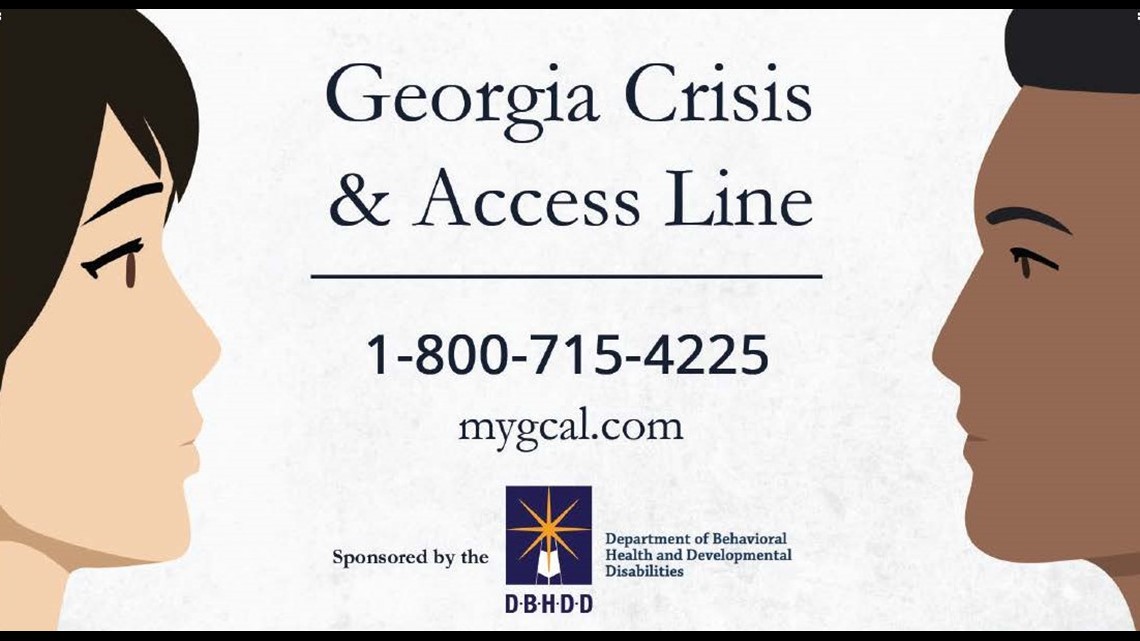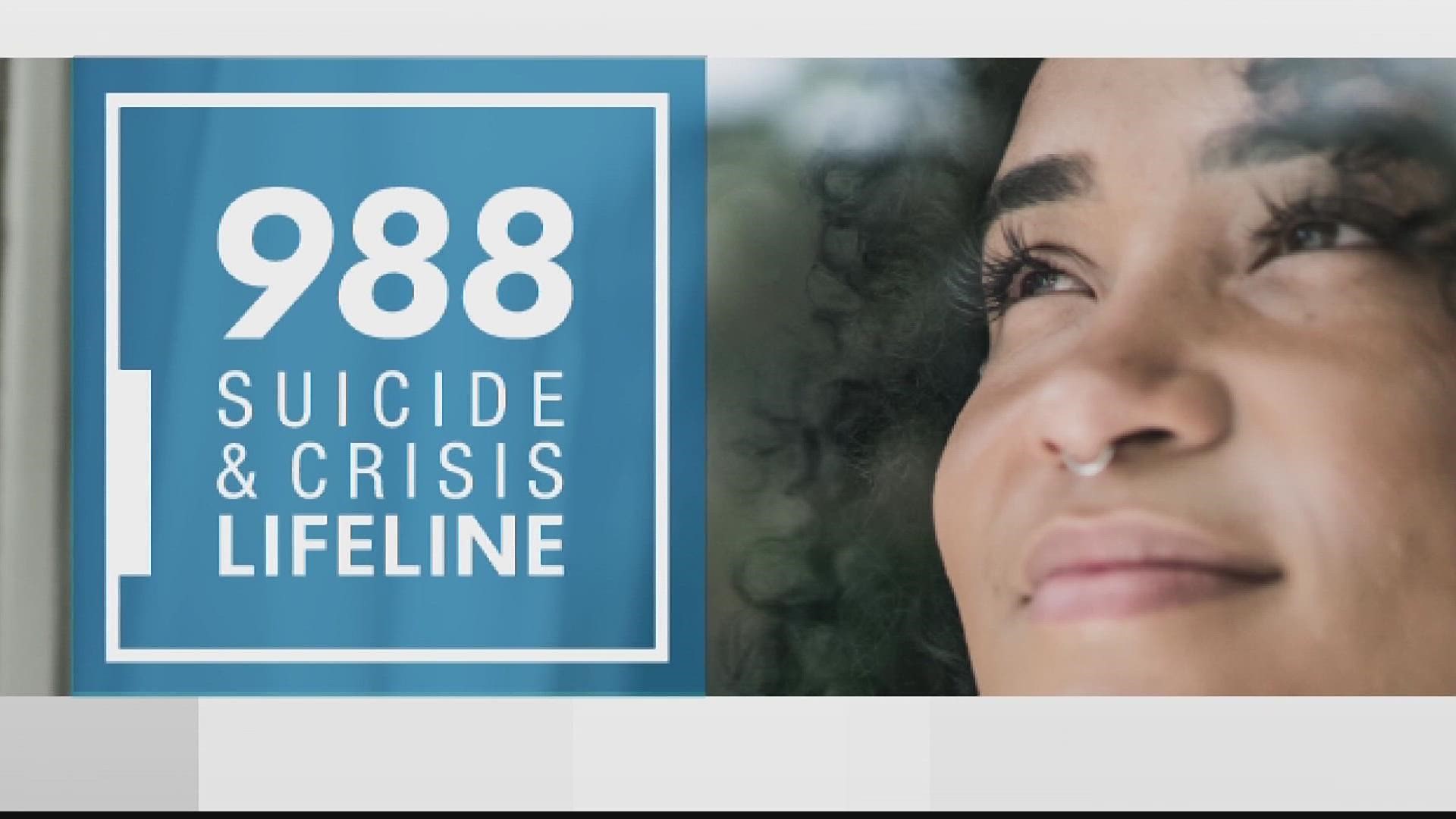ATLANTA — In less than 100 days, Georgians will have a new way to call for help when they or a loved one experiences a mental health crisis.
A new three-digit number is set to launch July 16 nationwide, offering an easier way to reach the National Suicide Prevention Network and mental health hotline.
Jasmine Turner knows what it's like to need that connection. She's been on both sides as someone in recovery and now, a recovery minister at North Atlanta Church of Christ.
"I personally have received so many calls of people dealing with just mental health crises," Turner said. "Either they've been isolated or either they just can't take whatever it is that they're going through anymore. I've even gotten calls from family members of grandchildren or children that are dealing with suicide, or overdoses that have been happening like never before, the number has skyrocketed."
That's where advocates and lawmakers hope the new 988 crisis line comes in. On Oct. 17, 2020, the National Suicide Hotline Designation Act of 2020 was signed into law, incorporating 988 into statute as the new Lifeline and VCL phone number.
The hope is a three-digit number will be easier to remembers and thus, more likely to be called in a crisis. Meanwhile, 988 will also provide an alternate to 911.
"Currently, when family members appear or somebody whose experiencing a mental health crisis calls 911, they get a police response," Kim Jones, executive director of the National Alliance on Mental Illness (NAMI) Georgia, explained. "And that's not what is needed."
In fact, if a department is not trained to deal with such crises, the effect can be detrimental, even deadly. According to NAMI, "one in four fatal police shootings between 2015 and 2020 involved a person with a mental illness, and an estimated 44% of people incarcerated in jail and 37% of people incarcerated in prison have a mental health condition — with two million people with mental illness booked into the nation’s jails every year."
While NAMI works to train officers in crisis intervention training, Georgia also another alternative in place for quick intervention.
"Georgia is fortunate," Commissioner Judy Fitzgerald of the Georgia Department of Behavioral Health and Developmental Disabilities, explained. "We do have the Georgia Crisis and Access Line (GCAL), which is 24/7 365 days a year."
As Commissioner Fitzgerald's team leads the rollout of the 988 line in Georgia, which she said the state has been working on for more than a year, she believes the existing crisis center makes Georgia better positioned than others for the launch.
But, staffing will be critical.
GCAL already responds to nearly 700 calls a day, a nearly 20% increase compared to the same time period in 2020. The center will also respond to incoming 988 calls once the line is launched. Even though the center already fields National Suicide Prevention Network calls locally, Fitzgerald said there is still an expectation call volume will increase.
"What we're looking at is how can we meet this increased demand that we've faced since the pandemic, and how can we continue to build the workforce of individuals who can respond," she said.
According to a spokesperson for DBHDD, the 2023 fiscal year budget includes $1.5 million in funding for additional call center staff as well as $6 million for Grady psychiatric crisis beds; $3.8 for Conversion of an existing Crisis Stabilization Unit (CSU) into a Behavioral Health Crisis Center (BHCC) in Augusta; and $3.1 million for 17 additional BHCC beds in Columbus.
Federal funding includes $3 million for 32 GCAL staff members. The spokesperson confirmed staffing needs will be determined and adjusted based on the actual calls received.
Both Jones and Fitzgerald emphasized a need for public patience as the 988 line launches mid-July, acknowledging there will be a transitional period
"When you think about it, 911 has taken decades to build to where we are right now," Fitzgerald said. "So when we think about 988 in July, we really think about this as the beginning of our transformation in behavioral health. So we've got lots of work to do. But I do believe in Georgia, we're well poised to continue that work."
Turner, meanwhile, believes the launch of the three-digit number and an easy connection to a trained professional could be a game-changer.
"That makes all of the difference in the world being able to connect with another person," Turner said. "Just hearing that person on the other end say, 'How can I help you?' It may take them from a level ten to a level eight. It might not fix it immediately, but we're on the way."



